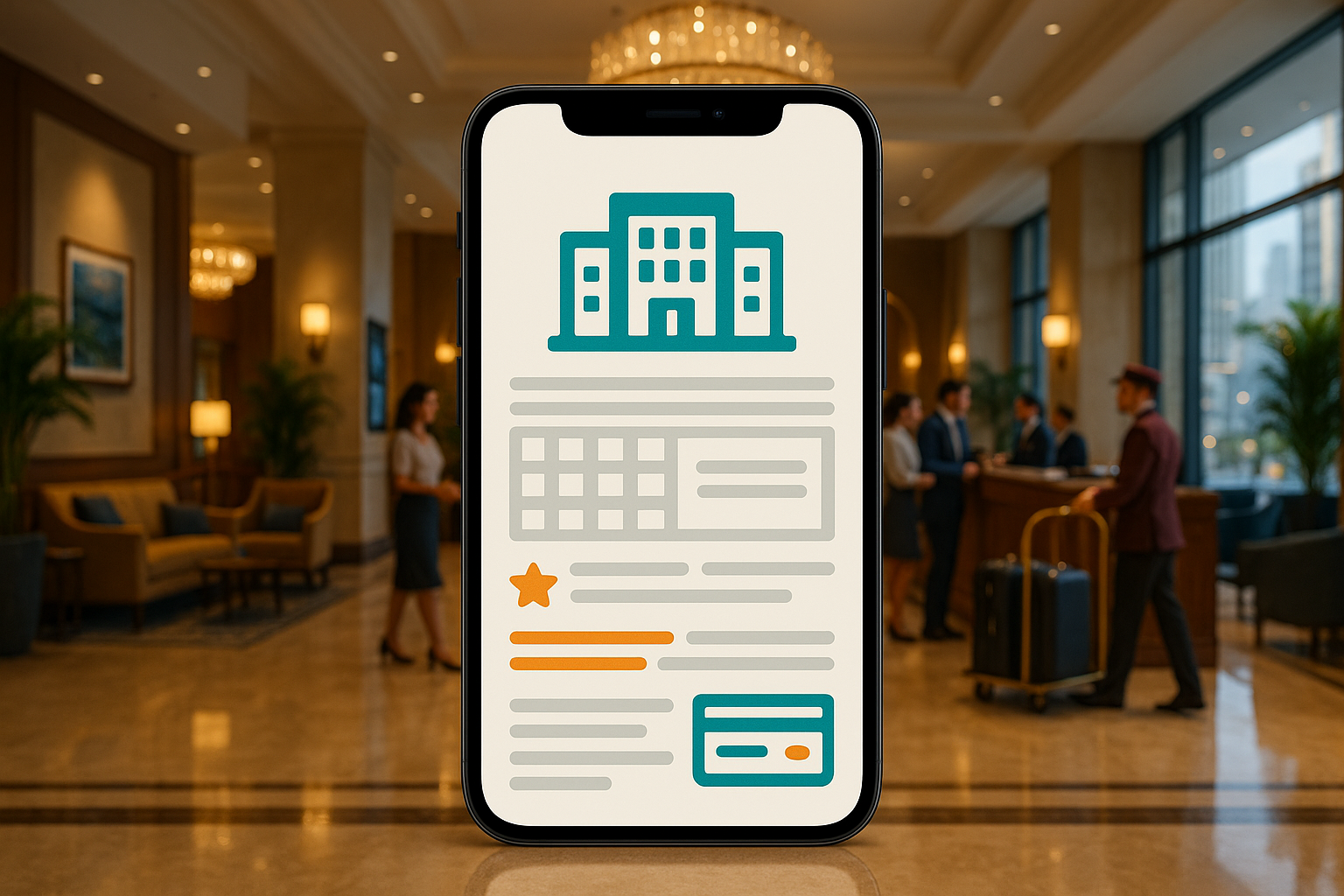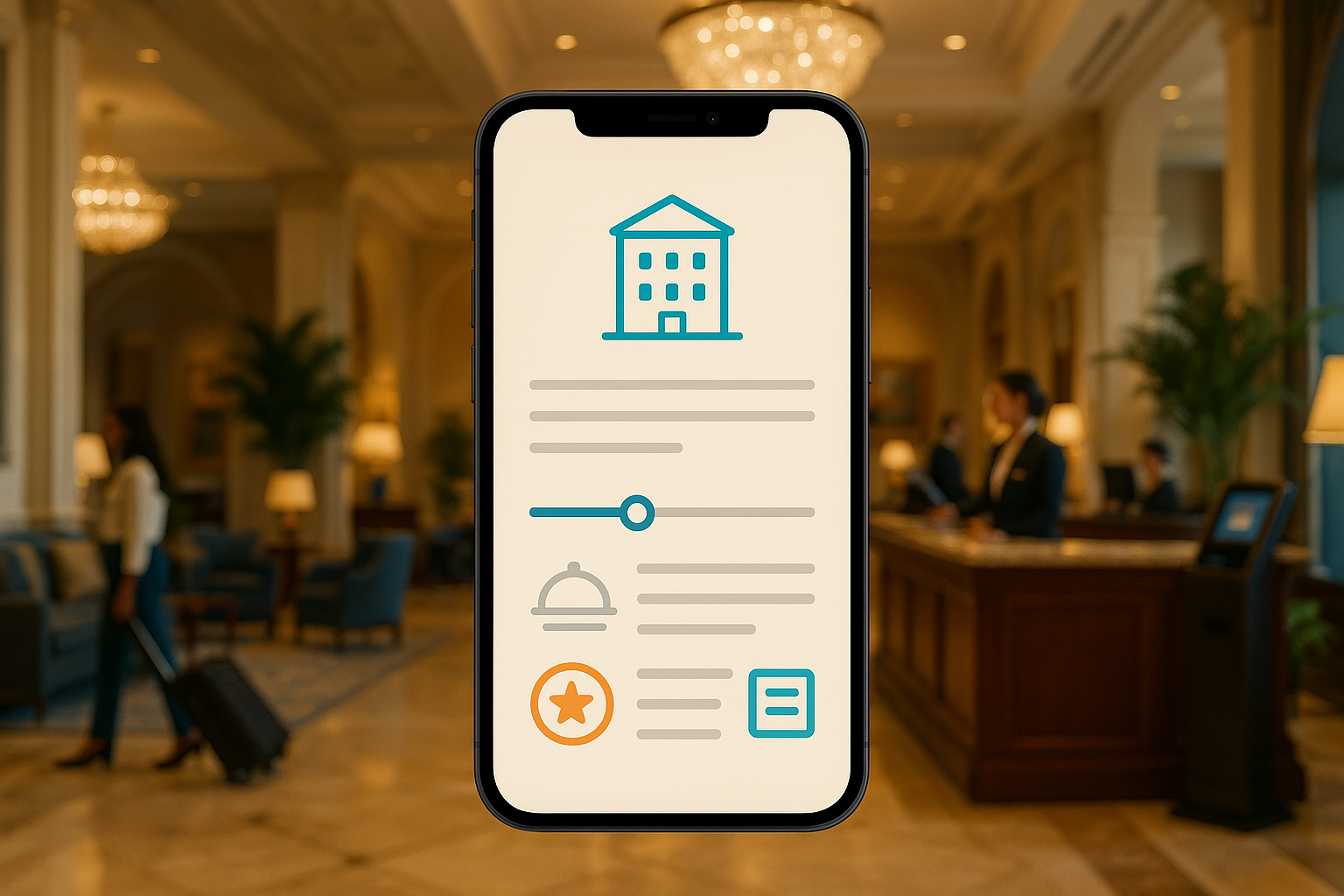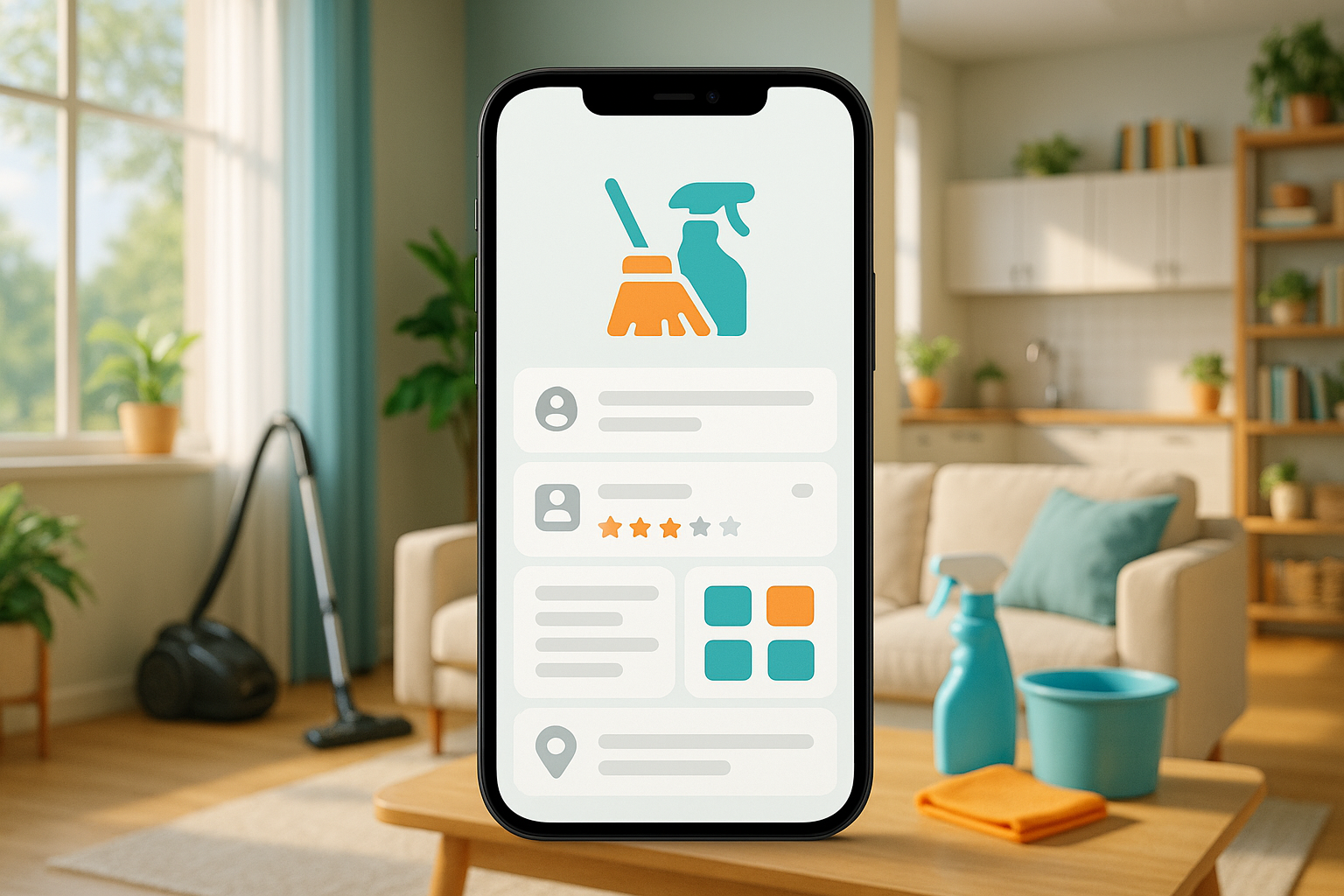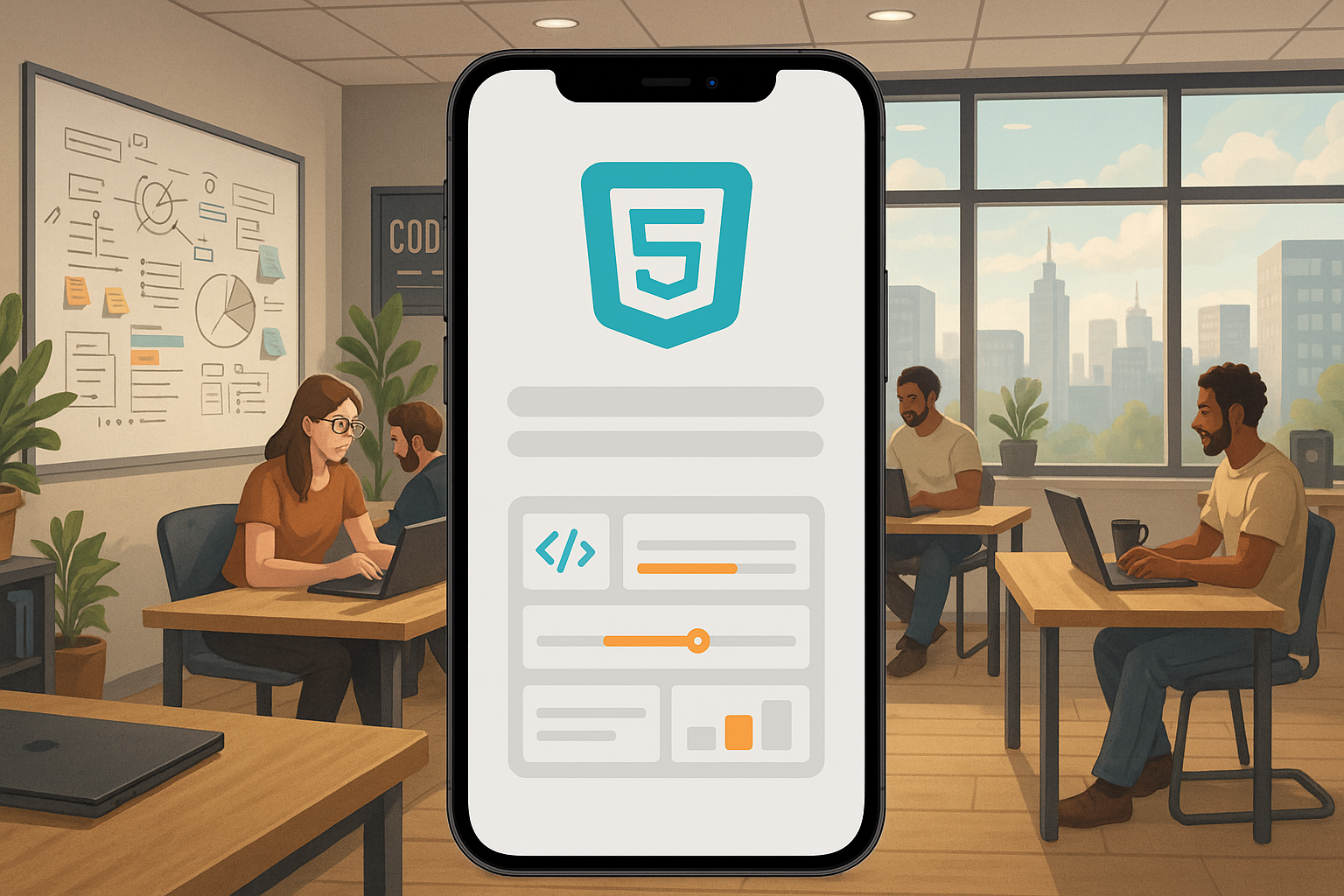Introduction
In today’s digital-first world, travelers expect seamless, on-demand access to booking accommodations. The rise of smartphones has transformed the hospitality industry, making a dedicated hotel booking app not just a luxury, but a competitive necessity. For businesses, this presents a monumental opportunity to capture a slice of the global travel market. However, the path to launching a successful hotel booking app is paved with significant technical and strategic challenges. From managing real-time inventory across multiple sources to ensuring ironclad data security and delivering a personalized user experience, the complexities can quickly overwhelm even seasoned in-house development teams.
This article serves as a comprehensive guide to navigating the intricate landscape of hotel booking app development. We will delve into the core functionalities of these applications, explore the distinct business models that drive them, and meticulously break down the technical hurdles that make their creation so difficult. Furthermore, we will provide a transparent look at the potential costs involved and identify the leading development companies equipped to handle such a project.
As a top US AI-powered app development firm with over 20 years of experience, we at MetaCTO have guided numerous companies from concept to launch and beyond. We specialize in building robust, scalable mobile applications and integrating complex functionalities like hotel booking systems. Throughout this guide, we will share insights gleaned from our 120+ successful projects, explaining how partnering with an expert agency can de-risk your investment, accelerate your time-to-market, and result in a product that not only meets but exceeds user expectations.
What is a Hotel Booking App?
At its most fundamental level, a hotel booking app is a mobile application that allows users to search for, compare, and book hotel accommodations. It acts as a digital marketplace, connecting travelers with a wide range of lodging options, from large hotel chains to independent boutique properties. However, the business mechanics powering these apps are often more sophisticated than they appear. The dominant model in the industry is the Online Travel Aggregator (OTA), also known as a hotel aggregator.
An OTA is a business that operates by leasing either an entire hotel property or a block of rooms directly from hotel owners. This model is particularly effective for properties that struggle with low occupancy rates and have difficulty generating consistent revenue on their own. The hotel owner enters into a lease agreement with the aggregator, securing a fixed annual revenue and offloading many of the operational burdens.
Once an agreement is in place, the aggregator takes on a significant management role. Their responsibilities often include:
- Property Modification and Standardization: The aggregator typically renovates or modifies the property to meet its own Standard Operating Procedures (SOPs). This could involve upgrading amenities, enhancing the decor, and ensuring a consistent brand experience across all properties under its umbrella. The goal is to elevate the property’s appeal and justify higher booking rates to maximize profit.
- Operational Management: The aggregator implements a strict management structure. This includes training hotel staff, often requiring them to adhere to new standards such as wearing specific uniforms or using protective gear, to ensure a high level of service quality and efficiency.
- Marketing and Reputation Management: A key responsibility of the aggregator is to market the hotel and manage its online reputation. They leverage their own powerful booking portals and also list the property on other major travel platforms to increase visibility. By rebranding the hotel and actively managing its image, the aggregator works to attract a higher volume of customers and enhance the hotel’s credibility.
While this model can be highly beneficial for hotel owners seeking stable income, it can sometimes lead to the original hotel brand losing its unique identity as the aggregator rebrands it to fit its portfolio. The most successful partnerships occur when the aggregator respects the hotel’s core brand reputation while simultaneously driving growth and revenue.
Reasons It Is Difficult to Develop a Hotel Booking App In-House
Embarking on the development of a hotel booking app is a complex endeavor. While it may seem achievable for an internal team, the unique combination of technical, security, and user experience challenges requires a level of specialized expertise that few companies possess. Attempting to build such a platform without this deep experience can lead to budget overruns, missed deadlines, and a final product that fails to gain traction with users. Here are the primary reasons why in-house development is so difficult.
Complex Booking Architecture
The heart of any booking app is its inventory management system, and this is where the first major hurdle lies. A hotel booking app must aggregate real-time room availability from a multitude of sources simultaneously: the hotels’ own systems, partner networks, and third-party aggregators. The challenge is to create a booking architecture that can process these disparate data streams instantly and ensure perfect synchronization. Any lag or poor sync can result in booking mismatches or, worse, overbooking—selling the same room to multiple customers. This not only creates a logistical nightmare and a terrible customer experience but also severely damages the app’s reputation. Building a fault-tolerant system that guarantees data integrity at scale is a non-trivial engineering feat.
Scalability Issues
The travel industry is subject to dramatic fluctuations in demand. A promotional campaign, a holiday season, or an unexpected travel trend can lead to sudden, massive spikes in user traffic. Most applications that are not specifically engineered for high scalability will crumble under this pressure. An app crash during a peak booking period means immediate and direct revenue loss. More importantly, it erodes user trust; a customer who experiences a crash is unlikely to return. Designing a cloud-native infrastructure with auto-scaling capabilities, load balancing, and resilient databases is essential to handle these traffic surges gracefully. This requires specialized knowledge in DevOps and cloud architecture that is often outside the scope of a standard in-house development team.
Security and Data Privacy
Hotel booking apps handle an immense volume of highly sensitive personal data, including full names, addresses, passport numbers, and credit card details. This makes them a prime target for cyberattacks. Consequently, security and data privacy are not optional features; they are foundational requirements. Adherence to a complex web of international regulations is mandatory. This includes the General Data Protection Regulation (GDPR) in Europe and the Payment Card Industry Data Security Standard (PCI-DSS) for handling payment information. Ensuring compliance requires airtight, end-to-end encryption for data both in transit and at rest, secure authentication protocols, and regular security audits. A single data breach can result in catastrophic financial penalties, legal action, and a complete loss of customer trust.
Integration with Payment Gateways
To serve a global user base, a hotel booking app must offer a variety of payment methods, from traditional credit and debit cards to digital wallets like PayPal and region-specific options like UPI in India or Apple Pay. Integrating these diverse payment gateways into a single, cohesive system is a significant challenge. Each gateway has its own API, documentation, and set of rules. The goal is to create a smooth, frictionless payment experience that works flawlessly across the globe without delays or transaction errors. A buggy payment process is one of the quickest ways to lose a customer at the final step of the booking funnel.
Lack of Personalization
In a crowded market, personalization is a key differentiator. Modern travelers expect an app to understand their preferences and provide tailored recommendations. This goes far beyond simply remembering a user’s name. True personalization involves leveraging intelligent algorithms and machine learning models to analyze a user’s past search behavior, booking history, and stated preferences to deliver relevant hotel suggestions, personalized offers, and dynamic content. Developing these algorithms requires expertise in data science and AI development, a skill set that is highly specialized and not typically found within a generalist app development team.
Multi-Language and Multi-Currency Support
To be truly global, an app must speak its users’ language and display prices in their local currency. This is more complicated than simply translating static text. It requires a system that can switch languages in real-time throughout the app interface. More challenging is the implementation of accurate, real-time currency conversion. Exchange rates fluctuate constantly, and the app must pull the latest data to provide precise pricing and avoid discrepancies during checkout. This requires integration with reliable currency exchange APIs and careful management of pricing data.
Offline Access and Performance Optimization
Travelers often find themselves in locations with poor or non-existent internet connectivity, such as on a plane or in a remote area. A high-quality booking app should anticipate this by providing offline access to core features. This could include viewing upcoming booking details, accessing hotel addresses and confirmation numbers, or browsing previously saved searches. Simultaneously, the app must deliver blazing-fast performance when it is online. Slow loading times for search results or images will frustrate users and lead to high abandonment rates. Achieving both robust offline functionality and peak online performance requires careful architectural planning, data caching strategies, and continuous performance optimization.
These challenges highlight why partnering with a specialized agency like MetaCTO is often the most strategic path. We have dedicated experts in each of these domains—from backend architecture and cloud infrastructure to AI and cybersecurity. By leveraging our experience, you can navigate these complexities efficiently and build a product that is secure, scalable, and loved by users.
Different Types of Hotel Booking Apps
While most hotel booking apps may look similar on the surface, they can be categorized based on the underlying business model that powers their operations. The most prominent and influential model is the Online Travel Aggregator (OTA), or hotel aggregator. Understanding this model is key to understanding the modern digital travel landscape.
As discussed previously, the aggregator model revolves around a business that directly intervenes in the hotel’s operations to drive revenue. This is a hands-on approach that differs significantly from a simple listing service. Here’s a deeper look at how it functions:
-
Property Selection: Aggregators strategically identify and target properties that are underperforming. These are often independent hotels that have great potential but lack the marketing muscle, operational efficiency, or brand recognition to attract a steady stream of guests and generate good revenue.
-
The Lease Agreement: The hotel owner and the aggregator enter into a formal lease agreement. The aggregator commits to renting a specific number of rooms, or sometimes the entire property, for a set period. In return, the hotel owner receives a guaranteed, fixed revenue stream, which provides financial stability and eliminates the uncertainty of seasonal demand fluctuations.
-
Transformation and Rebranding: This is where the aggregator adds its primary value. The company invests in bringing the property up to its own brand standards. This can involve significant changes:
- Renovation: The aggregator may renovate the hotel to align with current trends and guest expectations, which helps boost profit potential.
- Rebranding: The property is often rebranded under the aggregator’s name. This rebranding helps grab customers’ attention by leveraging the aggregator’s established reputation and marketing reach. While this can dramatically increase bookings, it also carries the risk of the original hotel losing its unique identity.
- SOP Implementation: The aggregator enforces its own Standard Operating Procedures (SOPs) to ensure a consistent and high-quality guest experience. This includes training hotel staff on new service protocols and operational workflows.
-
Marketing and Distribution: The aggregator takes full responsibility for marketing the property. They use their powerful online portals to feature the hotel prominently. They also list the hotel on various other travel platforms, ensuring maximum visibility. Their marketing efforts are focused on driving a high number of footfalls to the hotel’s booking page and enhancing the property’s credibility in the market. When customers discover the hotel through these channels, they are booking with the aggregator’s brand, trusting the standards it represents.
This aggregator model has reshaped the hospitality industry, providing a lifeline for many struggling hotels while creating powerful, trusted brands for consumers.
Cost Estimate for Developing a Hotel Booking App
One of the most critical questions for any business considering a new app is, “How much will it cost?” The final cost of developing a hotel booking app can vary significantly based on the complexity of its features, the platforms it supports (iOS, Android, web), and the development team’s location and experience. However, we can provide a general cost breakdown based on industry data.
The total cost to build a sophisticated hotel booking app typically ranges from $60,000 to $140,000. This investment is broken down across several key development stages and feature sets.
| Development Stage / Feature Set | Cost Range | Description |
|---|---|---|
| Basic Features | $5,000 – $25,000 | Core functionalities like user registration, search filters, hotel listings, booking calendar, and basic user profiles. |
| Advanced Features & Design | $25,000 – $45,000 | Includes advanced search with map integration, personalized recommendations, in-app messaging, push notifications, and a polished UI/UX design. |
| Customization & Branding | $5,000 – $10,000 | Tailoring the app’s look and feel to your brand identity, including custom icons, color schemes, and unique design elements. |
| Security & Compliance | $15,000 – $35,000 | A critical investment covering data encryption, secure payment processing (PCI-DSS), and compliance with privacy laws like GDPR. |
| Third-Party Integrations | $5,000 – $10,000 | Integrating with external APIs for maps (Google Maps), payment gateways (Stripe, PayPal), and hotel inventory systems. |
| Yearly Maintenance | $5,000 – $15,000 | Ongoing costs for server hosting, bug fixes, OS updates, and general support to keep the app running smoothly. |
It’s important to view this as an investment in a significant business asset. Trying to cut corners, especially on security and backend architecture, will almost certainly lead to greater costs down the line in the form of data breaches, system crashes, and lost customers. Partnering with an experienced mobile app development agency ensures that your budget is allocated effectively to build a robust, secure, and scalable product.
Top Hotel Booking App Development Companies
Choosing the right development partner is arguably the most important decision you will make in your app development journey. An experienced partner brings not only technical skills but also industry insights, strategic guidance, and a proven process for success. Based on industry recognition, client feedback, and portfolio strength, here are some of the top companies in the space.
1. MetaCTO
As a premier AI-powered mobile app development agency based in the US, we at MetaCTO are uniquely positioned to build and integrate sophisticated hotel booking solutions. With over 20 years of app development experience and a track record of over 120 successful projects, we have earned a 5-star rating on Clutch for our commitment to excellence. We understand that a hotel booking app is more than just a piece of software; it’s a critical business tool that needs to drive growth and revenue.
Our proven process takes you from idea to market-ready app, ensuring your vision is realized efficiently and effectively. We specialize in launching a Rapid MVP (Minimum Viable Product) in as little as 90 days, allowing you to test your concept, gather user feedback, and attract investors quickly.
What truly sets us apart is our deep expertise in AI and machine learning. We leverage AI to create the highly personalized user experiences that are essential for a modern booking app, from intelligent recommendation engines to dynamic pricing and personalized marketing. We handle every aspect of the project, including:
- Strategy and Validation: We help you refine your idea and build a product roadmap aligned with your business goals.
- Build and Launch: Our expert team handles the entire development lifecycle—design, engineering, and deployment—for a seamless, market-ready app.
- Growth and Monetization: We use data-driven techniques like A/B testing and analytics to optimize user acquisition, engagement, and retention. We also help you implement effective monetization strategies, whether through subscriptions, commissions, or in-app purchases.
Integrating complex hotel booking functionality into an app is one of our core strengths. We architect scalable, secure backends that solve the challenges of real-time synchronization and data management, so you can focus on growing your business.
2. Acropolium
Acropolium is another strong contender in the hospitality software development space. The company has earned significant recognition from Clutch, a leading B2B ratings and reviews platform. In 2024, Clutch featured Acropolium as one of the best app and web hospitality partners. The platform also recognized Acropolium as a top hospitality software development company in the Czech Republic.
Clutch’s evaluation process is rigorous, helping businesses identify the best partners for their needs. Vendors are assessed based on a variety of factors, including:
- Brand presence and industry recognition
- Company size and project portfolio
- Range of industry-related services
- Success cases and client feedback
This recognition, along with their previous naming by Clutch in 2023 as a top IT service company for the hospitality and leisure industries, solidifies Acropolium’s position as a capable and respected developer in this vertical.
Conclusion
Developing a hotel booking app is a formidable undertaking, but one with immense potential rewards. As we’ve explored, the journey is filled with technical complexities, from architecting a real-time booking engine and ensuring scalability to navigating a maze of security regulations and integrating global payment systems. We’ve examined the dominant OTA business model that has reshaped the industry and provided a realistic cost breakdown for bringing such a product to life.
While the challenges are significant, they are not insurmountable. The key to success lies in choosing the right development partner—a team with the specialized expertise, proven processes, and strategic foresight to guide you through every stage. A partner like MetaCTO doesn’t just write code; we build, grow, and monetize mobile apps, transforming ambitious ideas into market-leading products. We have the experience to tackle the hard problems of integration and scale, allowing you to go to market faster and with greater confidence.
If you are ready to build a powerful hotel booking app or integrate booking functionality into your existing product, the next step is to speak with an expert.
Talk with a Hotel Booking expert at MetaCTO to integrate Hotel Booking into your product.






